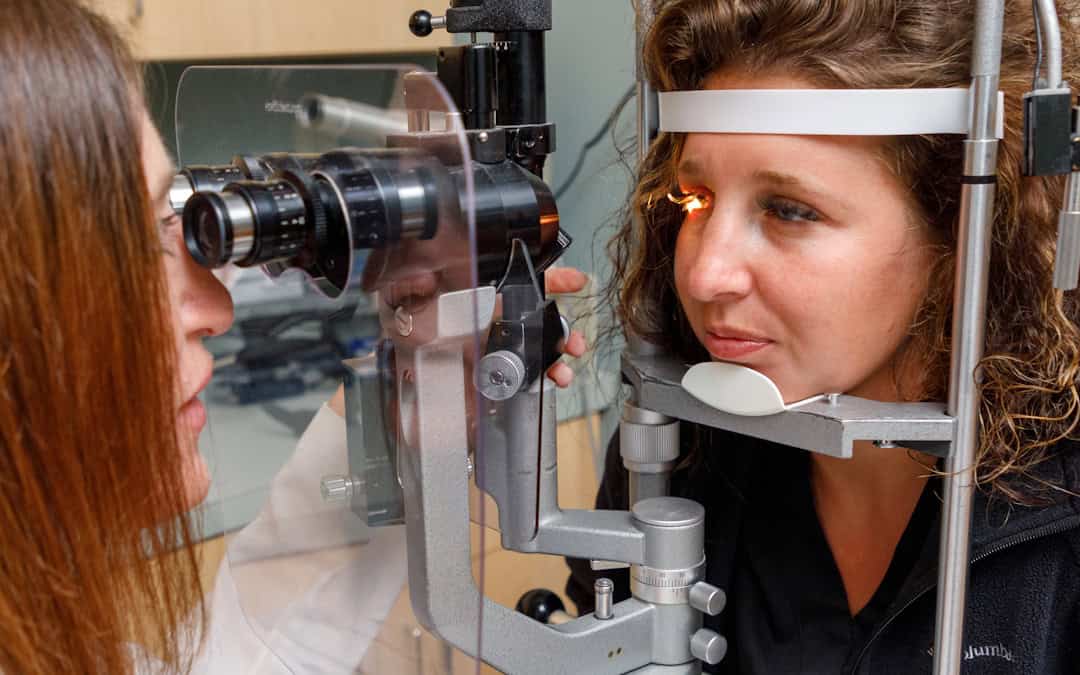Regular eye exams could save nearly 11 million Americans who need vision correction but don’t know it. Many serious eye diseases develop with no early warning signs, silently damaging your eyesight before you notice anything wrong. Glaucoma, commonly called the “silent thief of sight,” typically shows no symptoms until permanent vision loss has already occurred.
Eye exams do much more than just update your glasses prescription. According to the American Academy of Ophthalmology (AAO), a full 50% of people with glaucoma don’t know they have the disease. Diabetic retinopathy, which leads all causes of blindness in American adults, can be effectively treated in 90% of cases when caught early through regular eye exams. However, studies reveal only half of those at high risk for vision loss see an eye doctor annually.
Your eyes deserve protection now and for years to come. Whether you’ve noticed recent changes in your vision or simply want to maintain healthy eyesight, this article explains why scheduling your next eye exam might be the most important health decision you make this year. You’ll learn what happens during a comprehensive eye exam, how early detection can save your sight, and practical steps to protect your vision throughout your life.
Your Vision Health: Why It’s a Lifelong Commitment
Your eyes constantly change throughout your life, unlike other parts of your body that might stay relatively stable for decades. While you might think about your heart or dental health occasionally, your vision needs ongoing attention from childhood through your senior years.
How vision needs change over time
Your visual journey begins at birth and evolves as you age. Each life stage brings different challenges for your eyes. Children experience rapid visual development that shapes how they’ll see for decades to come. Young adults increasingly face digital eye strain from hours spent using computers and phones for school, work and entertainment.
By your 40s, you’ll likely notice that restaurant menus and books suddenly seem harder to read up close. These are common symptoms of presbyopia, a natural condition that happens when your eye’s lens loses flexibility with age.
As you move into your 50s and beyond, the risk grows substantially for serious eye conditions. Cataracts cloud the vision of more than 24 million Americans over the age of 40, while macular degeneration threatens the central vision of many people after age 60.
Life events can also trigger unexpected vision changes. Pregnant women often experience temporary shifts in their vision due to hormonal changes. Many common medications for conditions like high blood pressure or diabetes affect your eyes too, sometimes causing dry eye symptoms or making your eyes more sensitive to light.
The role of regular eye exams at every age
Eye exams serve different but equally important purposes throughout your life. For children, these exams can catch vision problems that might otherwise interfere with learning and development. For adults, regular eye checkups act as an early warning system for conditions that develop without obvious symptoms.
A comprehensive eye exam goes far beyond just checking if you need glasses.
When your eye doctor examines the blood vessels in your retina, they might spot signs of diabetes, high blood pressure, or even cancer before you notice any symptoms elsewhere in your body.
How often should you have your eyes examined? The recommended schedule changes with your age:
- Children: First exam at 6 months, then at age 3, before first grade, and yearly after that
- Adults 18-60: Every two years (more often if you have risk factors)
- Adults 61+: Annually
Your family history also plays a big role in determining how frequently you need eye exams. If one or both of your parents had glaucoma or macular degeneration, you should schedule more frequent monitoring to detect any early signs of these conditions.
Protecting your vision requires a lifelong commitment that pays dividends in your quality of life. If you’ve noticed changes in your vision or it’s simply time for your regular checkup, schedule an appointment with an eye doctor in Pittsburgh at Chang Eye Group.
What Really Happens During Your Eye Exam
A thorough eye exam involves much more than reading letters on a chart. When you step into the examination room, you’re starting a detailed process designed to evaluate not just how well you see, but the complete health of your eyes.
Your health story matters
The exam starts with your eye doctor gathering information about your personal and family medical history. At Chang Eye Group, our expert eye doctors listen carefully to you so that we can more accurately diagnose potential eye conditions that you may experience.
During this discussion, your doctor will ask about:
- Any current eye symptoms or vision changes you’ve noticed
- Your overall health, particularly conditions like diabetes or high blood pressure
- Medications you take regularly (both prescription and over-the-counter)
- Family history of eye diseases such as glaucoma or macular degeneration
- Your daily activities and work environment that might affect your eyes
Knowing your health history helps the optometrist understand potential risks and identify areas of concern that may warrant special attention during the eye exam.
Beyond the basic vision test
After discussing your history, your eye exam continues with several specialized tests. While the visual acuity test (reading the eye chart) measures how clearly you see at different distances, a complete exam includes far more advanced diagnostics.
These specialized tests typically include:
- Slit lamp examination to magnify and light up the front parts of your eye
- Tonometry to check your internal eye pressure, a critical test for detecting glaucoma
- Dilated eye exam allowing your doctor to examine your retina and optic nerve
- Corneal mapping creating 3D images of your cornea’s shape
- Digital retinal imaging to capture detailed pictures of the back of your eye
These tools help your doctor spot signs of eye disease before you notice any symptoms. Your doctor will use a variety of microscopes, lenses, and digital technology to check every structure of your eye and surrounding tissues.
A thorough eye exam can reveal not just vision problems but also signs of other health issues like diabetes and high blood pressure that show up in your eye’s blood vessels.
Chang Eye Group in Pittsburgh can provide you with a full picture of your eye health during your annual eye exam or whenever you have concerns about your vision.
The Real Benefits of Early Eye Disease Detection
Eye diseases often work like quiet intruders, slowly stealing your vision without giving you any warning signs. Understanding this silent nature helps explain why regular eye exams are so valuable for protecting your sight.
Catching vision threats before you notice problems
A study of nearly 3000 patients with no symptoms found that 58% had significant changes detected during routine eye exams. This included new critical diagnoses in 16% of patients and changes in management of existing conditions in 31%. These were not minor issues, but potentially sight-threatening problems caught before the patients noticed anything wrong with their vision.
Early detection makes a crucial difference because:
- Glaucoma damages your vision without noticeable symptoms until significant vision loss has already occurred
- Age-related macular degeneration (AMD) occurs over time and affects 35% of people over 80 years old
- Diabetic retinopathy can be prevented in 90% of cases when caught early through regular eye exams
The timing of detection directly determines how well your vision can be preserved. With conditions like macular degeneration, both the type and timing of treatment can significantly impact your future vision quality.
Discovering whole-body health issues through your eyes
Not only does your eye exam help protect your sight, it also provides valuable information about your overall health. Your eyes offer the only place where a doctor can directly view your blood vessels without surgery.
Through this unique window, your eye doctor can detect:
- Diabetes before it appears in blood sugar tests
- High blood pressure through visible changes in your eye’s blood vessels
- Heart disease and potential stroke risks
- Autoimmune diseases that show up as eye inflammation
One patient’s life was literally saved when a routine eye exam revealed a 90% blockage in his carotid artery that could have caused a life-threatening stroke. As he later said, “I was not aware that you could spot that type of thing in my eye, and I don’t think most people are.”
These benefits become even more important as you age—studies show that both advancing age and longer gaps between eye exams significantly raise the chances of finding new health conditions.
If you’re due for a check-up or have concerns about your vision, schedule an appointment with an eye doctor in Pittsburgh at Chang Eye Group. Remember, these appointments protect more than just your eyesight—they might save your life.
Taking the First Step: Booking Your Eye Exam Today
Putting off your eye exam might feel like a small decision today, but the price your vision pays tomorrow could be permanent. The facts paint a clear picture: acting now could make the difference between keeping your sight and losing it forever.
Why waiting can cost you your sight
Vision loss happens with virtually no pain and develops so gradually that you won’t notice changes until serious damage has already occurred. When you delay your eye exam, you’re simply giving silent eye diseases more time to quietly steal your sight.
The reality is troubling – eye doctors are now seeing more severe cases of glaucoma and increasing numbers of patients arriving at emergency rooms with advanced vision loss. Even a delay of a few months can prove critical. Some patients who had normal eye pressure in March but postponed their June appointments until September developed dangerously high eye pressures that required surgery.
You should call your eye doctor immediately if you experience:
- Blind spots in your peripheral or central vision
- Severe eye pain or headaches with vision changes
- Blurred vision or temporary vision loss
- Eye redness or halos around lights
An important tip: Check your vision one eye at a time by separately covering each eye. Symptoms that may affect just one eye often signal a problem that needs attention.
How Chang Eye Group in Pittsburgh can help
At Chang Eye Group, we focus on maintaining your eye health with thorough care. Our complete eye care services include annual exams, eyeglasses, contact lenses, and other specialized treatments. Our staff of experienced optometrists and ophthalmologists ensure your eyes stay healthy through regular monitoring.
Whether you’ve noticed recent vision changes or simply need an annual exam, Chang Eye Group provides professional care customized to your specific needs. We use advanced diagnostic equipment to catch eye conditions early, potentially saving your sight before you notice any symptoms.
Call Chang Eye Group today to schedule your eye exam at one of our convenient locations in Pittsburgh. Your future vision depends on the actions you take today.
The Vision-Saving Decision You Can Make Today
Your eyesight is one of your most valuable possessions, yet many eye diseases work silently without triggering any warning signs. Throughout this article, we’ve explored how regular eye exams serve as your first defense against preventable vision loss.
When caught early, many serious eye conditions can be managed effectively before causing permanent damage.
Eye exams detect problems like glaucoma, macular degeneration, and diabetic retinopathy while treatment options remain most effective. Beyond saving your sight, these exams offer a unique window into your overall health, potentially revealing diabetes, high blood pressure, and even heart disease before you notice other symptoms.
The facts are clear: if you wait until you notice vision problems, permanent damage may have already occurred. Regular eye exams dramatically reduce this risk, especially as you age or if your family has a history of eye disease. The steps you take today to protect your vision will benefit you for years to come. Remember that once vision is lost, it can’t always be restored, but vision problems caught early can often be effectively treated.
Make eye health a priority through regular exams and preserve your sight for the future. Don’t wait for symptoms to appear. Schedule an eye exam today with Chang Eye Group in Pittsburgh by calling (412) 429-2020.






